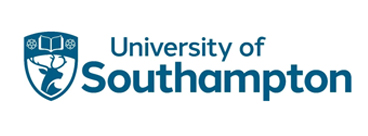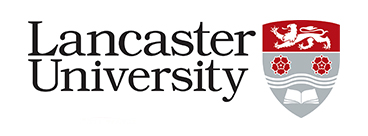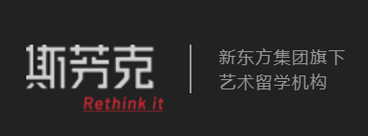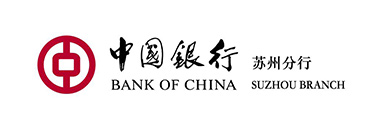21秋-香港科技大学-公共管理
背景介绍
申请难点
留学规划与提升
Program Overview
More so than ever, professionals in government (and organizations that work with governments) find themselves in environments that can be characterized as complex, unpredictable and unstable. The rules and routines, processes and precedents, and culture and capabilities of our organizations that used to work well before are coming under increasing stress. Our stakeholders and citizens are much less willing to trust government by default; they demand greater accountability from governments and public officials.
New policy challenges have also emerged: the promise (and the perils) of rapid technology advances; climate change, pandemics and sustainability; rising inequality and ageing societies; middle class anxiety and the rise of populist nationalism and identity politics; and a seemingly higher frequency of crises (financial, public health for example.). These challenges require new thinking and innovative, even radical, policy responses. In a world that is increasingly characterized by rapid and sometimes disruptive change, governments and public sector managers must be prepared to disrupt themselves.
The Master of Public Management (MPM) program is designed to prepare students to operate and thrive in a complex, rapidly changing and disruptive world. The program will prepare them for senior management roles in organizations that deliver public services or interact frequently with governments and regulatory authorities. It aims to equip students with the skills, knowledge and habits of mind to deal with the fast changing and contested environments that governments—as well as their stakeholders, partners, and regulated entities—face.
In this program, students will have the opportunity to develop their managerial capabilities such as their analytical skills, operational competence and political acumen—all of which are essential for successful careers in the public or private sectors. Leveraging the strengths at HKUST, the program also aims to give students the interdisciplinary perspectives that will enable them to explore the policy, operational, regulatory and political issues associated with technology advances and sustainability.
院校解读
留学方案
案例分析
Course List
REQUIREMENT OF CREDIT HOURS
The degree requires the completion of 27 credit hours (most courses are three credit hours), comprised of 18 credits of core courses and 9 credits of electives. Students admitted to the MPM will be required to complete the program on a full-time or part-time basis. Details as follows,
Core Courses: 18 credits
Elective Courses: 9 credits (Students will have the flexibility to choose from a wide range of courses based on their needs.)
Credit Transfer: Subject to the approval of the Program Director, students may apply for course substitution or credit transfer of no more than 12 credits.
-
PPOL 5280Economic Reasoning for Public Management3 Credits
-
PPOL 5260Public Management: Theories and Practices3 Credits
-
PPOL 5290Managing for Sustainability3 Credits
-
PPOL 5300Managing the Policy Process3 Credits
-
PPOL 5310Public Management for Technology Innovation3 Credits
-
PPOL 6120Capstone Project3 Credits
ELECTIVE COURSES (9 CREDITS)
MPM students will choose three electives from a wide range of courses. In addition to electives offered by the Division of Public Policy, students may also take courses offered by other departments/divisions such as HKUST Business School, School of Engineering, School of Humanities and Social Science, and the Division of Environment and Sustainability. Details as follows:
-
Elective courses offered by PPOL:
Students can take any PPOL postgraduate courses to meet the elective course requirement.
| Course code |
Course title |
No. of credit |
| PPOL 5180 |
Risk and Regulation |
3 Credit(s) |
| PPOL 5190 |
Policy Analysis and Design for Sustainable Development |
3 Credit(s) |
| PPOL 5200 |
Aging, Demography, and Policy |
3 Credit(s) |
| PPOL 5210 |
Environmental Policy and Natural Resource Management |
3 Credit(s) |
| PPOL 5220 |
Complex Systems for Policy |
3 Credit(s) |
| PPOL 5230 |
Technology, Innovation and Public Policy |
3 Credit(s) |
| PPOL 5240 |
Advanced Analytical Methods for Public Policy |
3 Credit(s) |
| PPOL 5250 |
Innovation and Sustainability |
3 Credit(s) |
| PPOL 5270 |
Finance, Financial Cries and Economics Development |
3 Credit(s) |
| PPOL 5320 |
Urban Economics and Urban Policy |
3 Credit(s) |
| PPOL 5330 |
Ethics and Public Policy |
3 Credit(s) |
| PPOL 5351 |
Environmental Economics |
3 Credit(s) |
| PPOL 6100 |
Special Topics in Public Policy |
1-3 Credit(s) |
-
Electives offered by other departments/divisions
| Course code |
Course title |
No. of credit |
| CIEM 5150* |
Dispute Resolution for Engineers |
3 Credit(s) |
| CIEM 5160* |
Construction Financial Management |
3 Credit(s) |
| CIEM 5810* |
Engineering Risk, Reliability and Decision |
3 Credit(s) |
| EEMT 5100*# |
Principles and Techniques for Technical Management |
2 Credit(s) |
| EEMT 5160*# |
Transportation and Logistics Management |
3 Credit(s) |
| EEMT 5300*# |
Global Supply Chain Management |
3 Credit(s) |
| EEMT 5360*# |
IT System for Global Enterprise |
3 Credit(s) |
| EEMT 5510*# |
Engineering Economics and Cost Management |
3 Credit(s) |
| EEMT 5530*# |
Financial Engineering and Risk Management |
3 Credit(s) |
| ENVR 5250 |
Environmental Economics and Management |
3 Credit(s) |
| ENVR 5260 |
Environmental Policy and Management |
3 Credit(s) |
| ENVR 6060 |
Sustainability Economics |
3 Credit(s) |
| EVSM 5230 |
Environmental Health and Management |
3 Credit(s) |
| EVSM 5300 |
Corporate Environmental Strategy |
3 Credit(s) |
| ISOM 5370 |
Technology and Innovation Management |
2 Credit(s) |
| SOSC 5620 |
Sustainable Development |
3 Credit(s) |

















